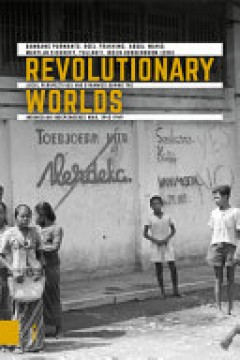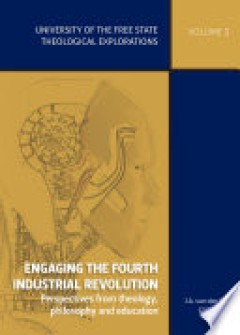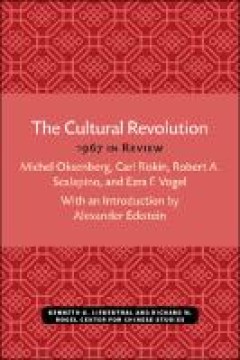Filter by
# Debug Box
/var/www/htdocs/pustaka-digital/lib/SearchEngine/SearchBiblioEngine.php:688 "Search Engine Debug 🔎 🪲"
Engine Type ⚙️: "SLiMS\SearchEngine\SearchBiblioEngine"
SQL ⚙️: array:2 [ "count" => "select count(sb.biblio_id) from search_biblio as sb where sb.opac_hide=0 and ((match (sb.topic) against (:subject in boolean mode)))" "query" => "select sb.biblio_id, sb.title, sb.author, sb.topic, sb.image, sb.isbn_issn, sb.publisher, sb.publish_place, sb.publish_year, sb.labels, sb.input_date, sb.edition, sb.collation, sb.series_title, sb.call_number from search_biblio as sb where sb.opac_hide=0 and ((match (sb.topic) against (:subject in boolean mode))) order by sb.last_update desc limit 10 offset 0" ]
Bind Value ⚒️: array:1 [ ":subject" => "'+\"revolution\"'" ]

Revolutionary worlds. Local perspectives and dynamics of the Indonesian Indep…
Revolutionary Worlds looks at the Indonesian revolution (1945-1949) from a local and regional perspective. With seventeen contributions, Indonesian and Dutch researchers bring to life the revolutionary world from widely differing perspectives. The authors explain how Indonesian, Chinese, Indian and Eurasian civilians, fighters, farmers and officials experienced and shaped the often volatile per…
- Edition
- 1
- ISBN/ISSN
- 9789463727587
- Collation
- 538p
- Series Title
- Onafhankelijkheid, Dekolonisatie, Geweld en Oorlog in Indonesië 1945-1950,
- Call Number
- 950 REV b

Engaging the Fourth Industrial Revolution : perspectives from theology, philo…
The reality of a radically changing world is beyond dispute. The notion of the Fourth Industrial Revolution is a heuristic key for the world of emerging technologies such as artificial intelligence, nanotechnology, quantum computing, big data, the internet of things, and biotechnology. The discussion of emerging technologies and the Fourth Industrial Revolution highlights urgent questions about…
- Edition
- 5
- ISBN/ISSN
- 9781928424512
- Collation
- xvii, 252 p
- Series Title
- Theological Explorations, Volume 3
- Call Number
- 201.66 VAN e

Unite, proletarian brothers! : radicalism and revolution in the Spanish Secon…
The origins of this book lie in a doctoral thesis defended at the University of Sheffield, later revised at York University, Durham University and the University of Leeds, and prepared for publication at the University of Stirling. The original research would not have been possible without a Hossein Farmy scholarship from the University of Sheffield and I am also grateful for further fundi…
- Edition
- -
- ISBN/ISSN
- 9781912702534
- Collation
- 266p
- Series Title
- -
- Call Number
- 946.081 MAT u
Empowering civil society in the industrial revolution 4.0
This article describes the efforts made by the government to increase the participation of beginner voters in the simultaneous general election held in 2019. The study uses a qualitative approach with a descriptive type. Data was collected through interviews, observations, and documentation. Data was analyzed using an interactive model with three activities flowing together, namely reducing …
- Edition
- -
- ISBN/ISSN
- 9781003180128
- Collation
- xv, 183 p.
- Series Title
- -
- Call Number
- 370.11509598 SUK e

The cultural revolution : 1967 in review
The Chinese Communist system was from its very inception based on an inherent contradiction and tension, and the Cultural Revolution is the latest and most violent manifestation of that contradiction. Built into the very structure of the system was an inner conflict between the desiderata, the imperatives, and the requirements that technocratic modernization on the one hand and Maoist values an…
- Edition
- -
- ISBN/ISSN
- 9780472902125
- Collation
- V, 125
- Series Title
- Michigan Monographs In Chinese Studies, 2
- Call Number
- 306 CUL c

Family and business during the Industrial Revolution
Small businesses were at the heart of the economic growth and social transformation that characterized the Industrial Revolution in Britain. In towns across north-west England, shops and workshops dominated the streetscape, and helped to satisfy an increasing desire for consumer goods. Yet, despite their significance, we know surprisingly little about these firms and the people who ran them, fo…
- Edition
- First edition.
- ISBN/ISSN
- 9780198786023
- Collation
- viii, 262 pages : illustrations ; 24 cm
- Series Title
- -
- Call Number
- 338.09034 BAR f
 Computer Science, Information & General Works
Computer Science, Information & General Works  Philosophy & Psychology
Philosophy & Psychology  Religion
Religion  Social Sciences
Social Sciences  Language
Language  Pure Science
Pure Science  Applied Sciences
Applied Sciences  Art & Recreation
Art & Recreation  Literature
Literature  History & Geography
History & Geography